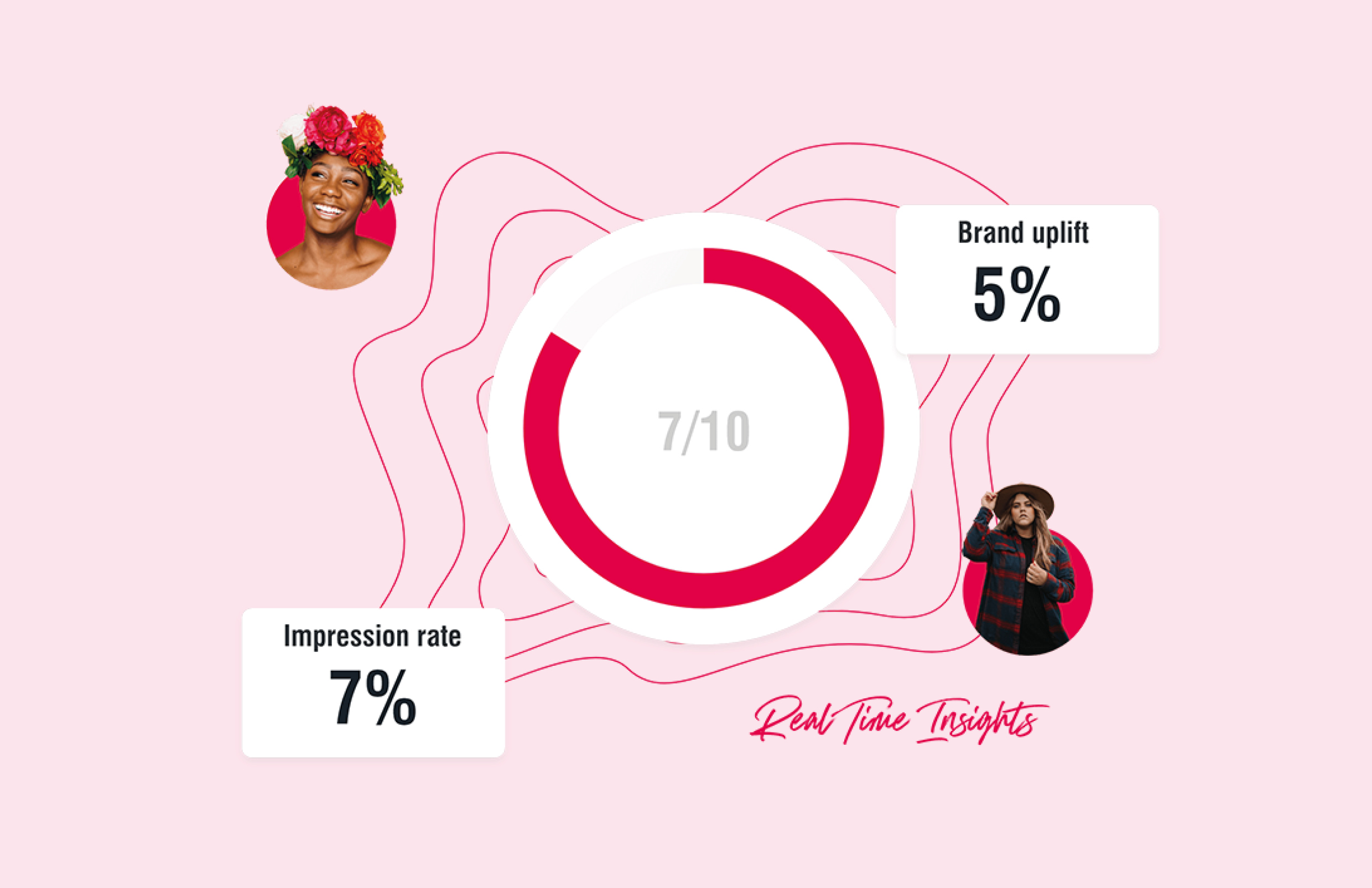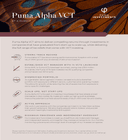Venture Capital Trusts
Venture Capital Trusts provide opportunities to invest in a diverse portfolio of scaling UK businesses tax-efficiently.
Introduction
First launched in 1995, VCTs were established to provide a vital source of funding to small and medium-sized businesses in the UK. Since then, they have helped to create thousands of jobs, fuel innovation and stimulate the growth of some of the country’s most promising smaller companies.
Young, entrepreneurial businesses often struggle to raise finance from traditional sources like banks. Yet, they often need significant capital investment in the early years to fuel growth. VCTs can bridge this gap. They achieve this by pooling money from investors to invest in a diversified portfolio of private companies to spread risk.
Though these companies may start small, some will eventually become household names in the future.
The government encourages investment in VCTs by providing generous tax benefits, but you should not invest in a VCT just for tax benefits. If you are in any doubt as to the suitability of a VCT for your individual circumstances, you should always seek professional independent financial advice.
Why you should always consider VCTs for your clients
We spoke to Sophie Haslehurst, a Chartered Financial Planner at Integrity365, about how she uses Venture Capital Trusts and what clients she considers suitable.
Sophie has worked with VCTs since 2010. She led the research committee at Investec for Tax-Efficient Investments and brought the proposition into Schroders Personal Wealth. Now, Sophie educates her colleagues to help them become more familiar with VCTs.
Why you should always consider VCTs for your clients
Download: Guide to Venture Capital Trusts
Download our Guide to Venture Capital Trusts to help discuss VCTs with your clients.

Ways to invest
Investing in VCTs can be carried out in two primary ways:
- New Shares: One way to invest in a VCT is by purchasing new shares when a VCT launches a new issue. This can be done directly or through a financial adviser who specialises in these types of investments.
- Secondary Market: Another way to invest in a VCT is by purchasing existing shares from another investor on the secondary market. However, this is rare as those buying will not benefit from the same tax reliefs that are available for investors in new shares issued by a VCT.
Type of companies that are held in a VCT
VCTs invest in small, unlisted companies that are looking for funding to help them grow. These companies are generally:
- Unlisted, meaning their shares are not traded on a recognised stock exchange.
- Have a gross asset value of no more than £15 million before investment and £16 million immediately after.
- Have fewer than 250 employees.
- The company must have a permanent establishment in the UK.
- Generally, the company must be less than seven years old.
- The Company must receive its first risk finance investment no later than seven years after its first commercial sale.
- The Company cannot raise more than £12m in its lifetime.
- The investment must be used for a qualifying business activity, typically a trade carried on with the intention of making profits. Certain activities, such as banking, farming, and property development, are excluded.
They are often in sectors such as technology, biotech, green energy, and other high-growth potential sectors. However, they can also be in traditional sectors that are innovating and expanding.
Examples of qualifying companies
Tax reliefs associated with VCTs
There are several tax reliefs associated with investing in VCTs:
- Income Tax Relief: Investors can claim up to 30% income tax relief on VCT investments up to £200,000 per tax year, provided the VCT shares are held for at least five years.
- Dividend Tax Relief: Any dividends received from VCT shares are tax-free, regardless of the investor's tax rate.
- Capital Gains Tax Relief: Any gain made when VCT shares are sold is not subject to Capital Gains Tax.
Please note these tax reliefs are subject to change and depend on the VCT maintaining its VCT-qualifying status.
Upfront income tax relief
Tax-free capital gains
Tax-free dividends
Tax reliefs are not guaranteed, depend on individuals’ personal circumstances and a five-year minimum holding period, and may be subject to change.
Key benefits of a VCT investment
- Diversification: VCTs provide a means for investors to gain exposure to small, high-growth companies that they would not normally have access to.
- Tax Incentives: As discussed, the tax benefits of investing in VCTs can be substantial.
- Potential High Returns: While risky, investments in growth companies can potentially offer high returns if the companies perform well.
- Supporting Innovation and Job Creation: VCT investments can support innovative companies and contribute to job creation in the economy.
Open VCT offers from Puma Investments
Puma VCT 13
149.55p
NAV + Total Dividends as of 30 June 2023
16.5p
Dividends paid to date
OPEN FOR NEW INVESTMENT
Strong track record
Launched in September 2017, Puma VCT 13 aims to deliver compelling returns through investments in companies that have graduated from start-up to scale-up, while delivering the full range of tax reliefs that come with VCT investing. Puma VCT 13 has assets of more than £100 million, has invested in 18 companies and made successful exits.
Read morePuma Alpha VCT
26%
NAV growth since inception (inc. dividends)
5p
Dividends paid to date
OPEN FOR NEW INVESTMENT
Investing in established UK businesses
Puma Alpha VCT is our 14th VCT and aims to deliver compelling returns through investments in companies that have graduated from ‘start-up’ to ‘scale-up’, whilst still delivering the full range of tax reliefs that come with VCT investing.
Read more
FAQs
The minimum investment in a VCT can vary, but it's usually around £3,000.
Yes, VCTs are considered high-risk investments. They invest in small, often unproven companies, which can result in losses.
Yes, you can sell your VCT shares, but it may be hard to find a buyer, and there might be a significant difference between the buying and selling price. Also, selling within five years would lead to a loss of the upfront income tax relief.
For tax purposes, you should hold your VCT investment for at least five years. However, due to the nature of the companies VCTs invest in, it may take longer than this for the companies to grow and provide a return on investment.
Depending on the provider, you may be able to, although you will not be able to take advantage of the tax reliefs.
No, VCTs cannot be held in ISAs or SIPPs.
If a VCT loses its VCT status, investors may lose their income tax relief and could face a tax bill. Future dividends would also be taxable, and any sale of shares would be subject to capital gains tax.
You can invest more than £200,000 in a single tax year, but you will receive the income tax relief only on the first £200,000.
Risk Factors
An investment in Puma VCTs carries risk and you should take your own independent advice. You should only invest in a Puma VCT on the basis of the relevant prospectus, which details the risks of the investment. Below are the key risks:
Tax reliefs: Tax reliefs are not guaranteed, depend on individuals’ personal circumstances and a five-year minimum holding period, and may be subject to change.
Liquidity: It is unlikely there will be a liquid market in the ordinary shares of Puma VCTs and it may prove difficult for investors to realise their investment immediately or in full.
Capital at risk: An investment in a Puma VCT involves a high degree of risk. Investors’ capital may be at risk.
General: Past performance of Puma Investments in relation to its VCTs is no indication of future results. The payment of dividends is not guaranteed. Investors have no direct right of action against Puma Investments. The Financial Ombudsman Service/the Financial Services Compensation Scheme are not available.










